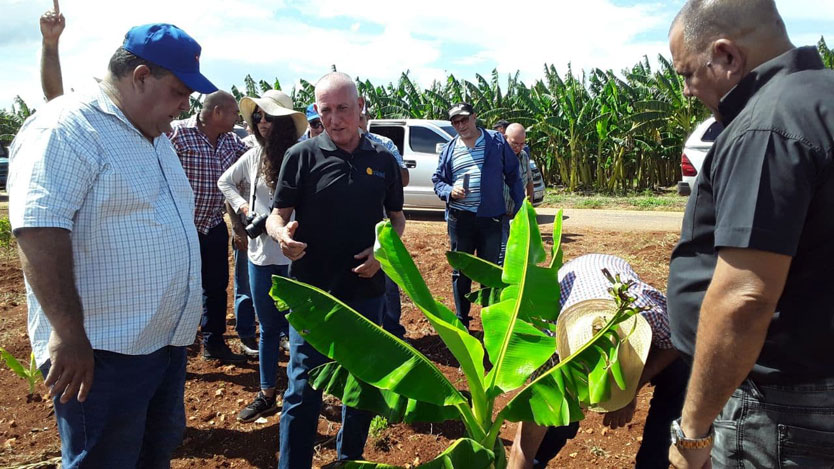
The province of Ciego de Ávila's plan for the cold sowing campaign (September to February) amounts to more than 20,000 hectares (ha), a goal that the agricultural sector must assume in the midst of a scenario of complexity aggravated by the national and international economic situation, which will severely limit access to essential inputs and resources.
When there are 40 days left before the end of the spring campaign, several setbacks sprout in the fields of the territory, sown today at 84 percent. Completing the goal of 16,993 hectares seems like a difficult comeback because there are still some 5,000 left; and that is not a piece of land that oxen can plow.
Issue made clear by Félix Duarte Ortega, member of the Secretariat of the Central Committee of the Party and Head of its Agrifood Department, during a meeting with members of the Provincial Bureau of the Party, Governor Tomás Alexis Martín Venegas, the highest political and government representatives of the municipalities of Ciego de Ávila, cadres of the Agriculture system and the Azcuba Sugar Group.
In the face of such limitations, it is necessary to reinforce control actions, to get much closer to the peasant's farm, said Duarte Ortega, to which he added the urgency of planting everything possible here, and beyond what was planned, to honor the commitments with the province and the country.
The head of the Agrifood Department of the Central Committee of the Party stressed the importance of doing things in accordance with the traditional model, on issues such as the use of seeds of many crops for which there will be no replacement in the event of a meteorological event.
During the meeting, the use of biological means, the productive state of the Entomophagous and Entomopathogenic Reproductive Centers (CREE), the preparation of agricultural machinery, as well as the production and certification of seeds in the territory were also analyzed.
The requests for delivery of land in usufruct, which in the territory are about 6020, of which more than 75 percent are approved, is among the fundamental discussedissues; however, many processes are out of date. In addition, progress is not being made at the desired speed, since the province has 37,214 ha of idle land in its fund.
In this sense, Duarte Ortega said that the land continues to be the fundamental resource that we have. “From the municipal delegations of Agriculture, we must change the mentality quickly and not wait for people to go to the offices to make the request, but rather that the officials themselves visit the producers, propose them and commit the producers to put more areas to produce”, he added.
One issue that they insisted on giving priority attention to was the protection of central pivot irrigation machines, by avoiding criminal acts on these resources for which in the vast majority of cases there is no replacement.
During the meeting, Ydael Pérez Brito, Minister of Agriculture, commented that, among the main challenges facing the nation to ensure food sovereignty, is the excessive increase in the prices of inputs and raw materials in the world market, in addition to of internal migration from the countryside to the city and population aging, the latter more decisive than any resource.
“We must stop routinely checking a plan and serving people. Sow people to fill the field, encourage young people to have an attractive life project in food production,” he said.
Guaranteeing the future in our fields?
In addition to the lack of fertilizers and inputs, illegalities and other economic problems that weigh on agricultural production in the country, one of the major problems of the peasantry is the almost non-existent generational change.
As part of the visit, Duarte Ortega and Pérez Brito, accompanied by provincial authorities, exchanged with the young producer Jaime de León López, from the Credit and Services Cooperative (CSS) El Vaquerito, in the municipality of Venezuela, who has cultivated previously empty and unproductive land.
It currently has more than 17 cavalleries planted with crops such as plantain and cassava, with the possibility of expanding to a larger area. The young man also intends to deliver 1,000 liters of cow's milk before the end of the year.
In the exchange, De León López commented that among the issues to change to achieve better and faster results is that banking institutions offer higher credits to farmers, since many cost tokens have increased their value exponentially.




